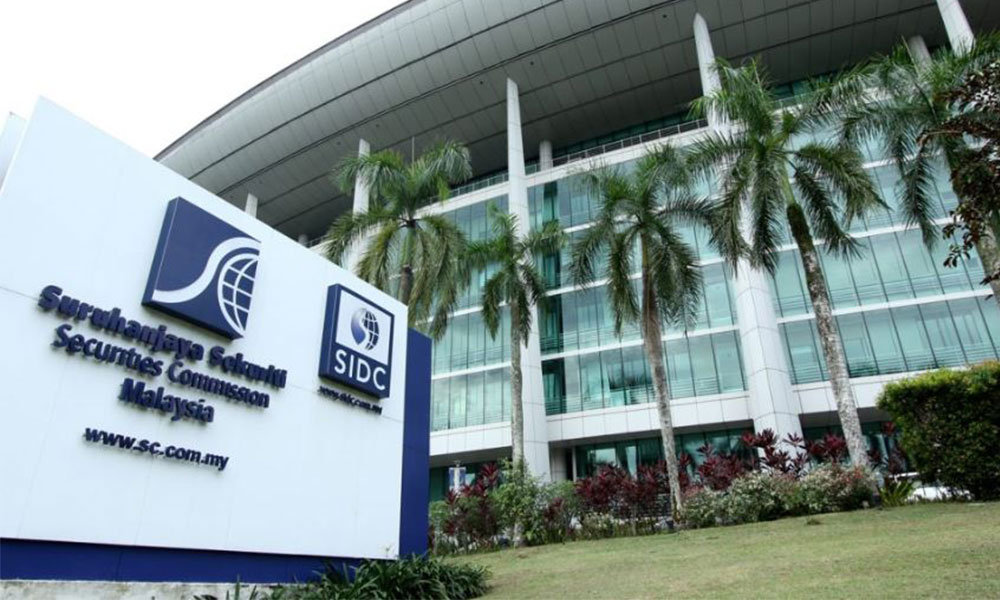Attorney-General Idrus Harun’s statement explaining why he withdrew the criminal charges against four key officials of listed oil-and-gas company Serba Dinamik Holdings Bhd and instead compounded their offences is shocking, illogical and without proper basis.
Idrus should listen to those who know better, especially the Securities Commission (SC), whose professionals are there to specifically administer the complex Capital Markets and Services Act 2007 (CMSA) to ensure that markets are fair, orderly and transparent and participants play by the rules.
Relaxing the rules selectively for some market participants by using discretion, which is given to the AG for the prosecution of all cases in Malaysia, is a complete no-no because the longer-term impact is a loss of confidence in the Malaysian financial markets. This in turn leads to a relative drop in market values compared to markets that investors trust more.
Paradoxically, this is exactly what the AG said he was keen to prevent when he said, “The AGC (Attorney-General’s Chambers) is also of the view that the criminal proceedings against SDHB (Serba Dinamik) ought not to be pursued due to the economic consequences of doing so. The impact of the charges on SDHB is disproportionate with the severity of the alleged offences committed.”
The economic consequences are that there will be an erosion in the value of capital markets in the billions of ringgit if there is even the slightest suspicion that market participants can rig the market and get away with it by a mere fine. Market integrity is compromised when the independence of the SC is interfered with needlessly.

It is for this very reason that the SC was set up and staffed by very qualified professionals to regulate the capital markets fairly and independently. Every country in the world which takes capital markets seriously has such a body set up and given independence to regulate, including prosecution.
Therefore, any serious charge of providing false information should be fully investigated and prosecuted. especially when they affect questions of market confidence. They are not disproportionate in terms of the impact on Serba Dinamik - the impact on the overall market can be far more severe.
The AG and his chambers do not have the necessary breadth and depth of expertise to overrule the recommendations of the SC, the experts in this area. It is clear that the AG’s decision with respect to this case led to the resignation of the chairperson of the SC and three other key officials, leaving a regulatory gap.
Accounting discrepancies
The story is about a year in making. Serba Dinamik’s auditors KPMG highlighted accounting discrepancies of over RM4.5 billion, according to reports, in May last year. The company did not voluntarily try to settle problems but instead fought the auditors KPMG and EY Consulting (appointed to review the audit) and stock market regulator Bursa Malaysia all the way.
Last November, Serba Dinamik said it filed an originating summons against EY Consulting and was seeking to restrain the auditor from sharing any findings or opinions on the company.
In the summons, Serba Dinamik sought a declaration that EY Consulting misrepresented that it could be appointed to conduct the review, following a directive by Bursa Malaysia, and that its appointment had no legal effect from the start.
It culminated in the SC finally charging four top officials of Serba Dinamik last December for submitting a false statement to Bursa Malaysia - an offence under Section 369(a)(B) of the Capital Markets and Services Act 2007 (CMSA).
They were the company’s CEO Mohd Abdul Karim Abdullah, executive director Syed Nazim Syed Faisal, group chief financial officer Azhan Azmi, and vice president of accounts & finance Muhammad Hafiz Othman.
According to the SC’s charges filed at the Kuala Lumpur Sessions Court, the false statement is in relation to the revenue figure of RM6.014 billion contained in Serba Dinamik’s quarterly and yearly report for the period ended Dec 31, 2020.
Under Section 369(a)(B) of the CMSA, a person found to have made a false or misleading statement to the SC, the stock exchange or approved clearing house, if convicted, faces an imprisonment term not exceeding 10 years and a fine of not less than RM3 million, or both.
The SC’s investigation into Serba Dinamik started in May 2021 following a Section 320 CMSA report by KPMG to the SC.
Under the CMSA, auditors have a statutory obligation to immediately report to the SC, if they reasonably believe that there are any matters that may constitute a breach or non-performance of any requirement of securities laws, rules of the stock exchange or any matter that may materially adversely affect the financial position of a listed company.
Under the circumstances, it is surprising that the AG decided to agree to compound fines on April 13. Furthermore, on the payment of the compound fines, the court discharged and acquitted the four on May 13, the same day the AG released his explanation letter. This may imply they cannot be charged for the same offences again.
As recently as April 21, Serba Dinamik issued a 26-page statement questioning the SC’s pressing of charges against it and alleged that its staff were threatened, amongst other things.

The SC dismissed the claims in a statement and lodged a police report against the allegations made by Serba Dinamik. Such a train of events is probably unprecedented in the annals of Malaysian corporate history and shows no remorse on the part of those charged.
Strength of the case
Idrus’ ground for his decision as explained in his letter dated May 13, does not stand up to scrutiny. First, even if there were economic issues involved, his decision must be based on the law and not other considerations. That’s for the judge to decide on the facts of the case, not the AG. The only consideration is the strength of the case.
Further, he said: “The AGC noted that the evidence against SDHB and its four executives was circumstantial in nature and required the application of the deeming provisions of Section 367(1) of Act 671 (the CMSA) which deem these executives to have committed the offences based on their capacity as directors or officers of SDHB.”
Essentially, Section 367 (1) assigns blame to the relevant officials unless they can prove otherwise. It does not in any way invalidate or make the charges harder to prove.
Idrus made no reference to Serba Dinamik’s auditors KPMG who questioned some RM4.5 billion worth of transactions. A subsequent review audit by EY Consultancy of the accounts validated KPMG’s queries. Serba Dinamik sued both of them and Bursa Malaysia, accusing the regulator of abusing its powers.
Those indicate that investigations were well advanced and more than circumstantial evidence was involved with two audit firms and the stock exchange concerned over Serba Dinamik’s accounts.
Bursa Malaysia had this to say, regarding Serba Dinamik’s actions: "Timely disclosure of material information is a key pillar of ensuring the market is well informed of the information and all investors are treated equally and able to trade on equal footing in terms of parity of disclosures.
"This is paramount to enable Bursa Securities to discharge its statutory duty." It added it will be "defending its position vigorously and will not abdicate its statutory roles and functions in the marketplace".
Under the circumstances, it certainly looks like there were no grounds for the AG to interfere in the SC’s decision to prosecute the officials and should have let the courts decide the outcome.
There was not only enough evidence but the public interest, in this case, a fair and orderly market, would have been served as well, contrary to what the AG maintains in his statement.
As I mentioned here, the solution to this conundrum is to remove the AG’s discretion to prosecute, leaving it to the overseeing regulators and authorities, have the AG appointed via Parliament and set a two-thirds majority decision at Parliament for his removal.
It would involve amending the Federal Constitution but would go a long way towards ensuring that gaffes like this do not happen and competent authorities are allowed to make the right decisions without political and extraneous influences. - Mkini
P GUNASEGARAM, a former editor at online and print news publications, and head of equity research, is an independent writer and analyst.
The views expressed here are those of the author/contributor and do not necessarily represent the views of MMKtT.




No comments:
Post a Comment
Note: Only a member of this blog may post a comment.